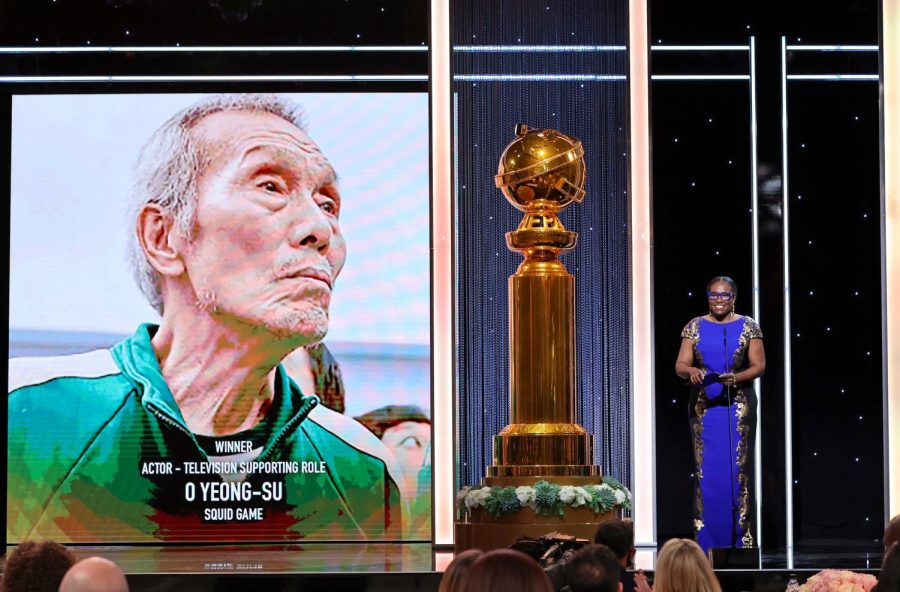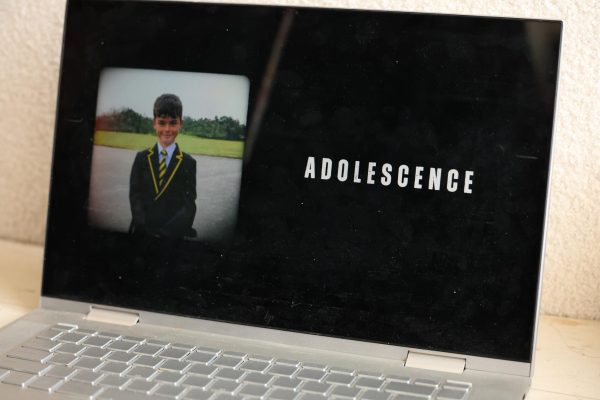Golden Globes 2022: Brought to You by Twitter
On Jan. 9, amidst the COVID-19 pandemic and controversy surrounding a general lack of diversity, the Golden Globes announced the winners of their 2022 awards through Twitter. While the Golden Globes are usually thought of as the Oscar’s less prestigious, boozier sibling, the decision to scale back was forced upon them by widespread backlash against its parent organization, The Hollywood Foreign Press Association (HFPA).
When the HFPA announced the winners, the Golden Globes official twitter tweeted this quote from Helen Hoehne, the HFPA’s president: “The #GoldenGlobes are a bridge to a world audience of many colors, many faiths, and many cultures, all united with the same passion – a love of movies.” This quote, although a nice sentiment, embodies the flawed mission of the HFPA. The organization purports that it connects foreign bodies together through their love of film and art, but it fails grievously. Until NBC refused to air its broadcast in 2022, the organization’s body of 87 foreign entertainment journalists did not include a single Black writer.
In May 2021, NBC reneged on its contract to air the Golden Globes due to concerns about the organization moving too slowly to enact change. Even before NBC refused to air the broadcast, the HFPA released a statement on its website saying, “We understand that we need to bring in Black members… and we will immediately work to implement an action plan to achieve these goals as soon as possible.” NBC’s boycott did not put the thought of much needed change into the HFPA’s mind, but it lit the fire beneath its feet.
That fire has certainly got HFPA moving. On Oct. 1, 2021, they announced the names and nationalities of its newest 21 members, six of which are Black, six are Latinx, five are Asian and four are Middle Eastern/North African. Along with increasing its members, HFPA has announced its partnership with St. Elmo’s Village, Get Lit and other organizations that help fuel artistic achievement and imagination in underprivileged communities all across the world. HFPA has also partnered with the NAACP to create the Reimagine Coalition, which hopes to spread diversity and equity throughout the entertainment industry.
While not the “party of the year,” as the HFPA website dubs it, the Twitter awards still garnered a lot of attention. Michaela Jia Rodriguez won Best Performance of an Actress in a Drama Series for her role in “Pose,” breaking ground for future queer, Latina and Black artists hoping to follow in her footsteps.
After the ceremony, the HFPA released a statement from its podcast, “Golden Globes Around The World,” on its website. In it, one of their new members spoke about the continued critiques of the HFPA. Kimberly Reyes asked who critics are “punishing at this point by turning [their] back on the HFPA?” She continued, saying, “Are you going to sully the wins of last night for the first trans actress and first Korean actor?” Reyes’ question, much like Hoehne’s aforementioned quote, fails to acknowledge the active role that the HFPA has taken in excluding the very people Reyes’ is using as a defensive shield. Of course the “first trans actress,” Michaela Jia Rodriguez, and “first Korean actor,” O Yeong-Su, deserve acclaim for their performances, but they are the “first” only because the HFPA has been a participating member of the exclusive Hollywood that barred artists like them from the roles and praise they deserve. The HFPA has made strides to change, and that is laudable, but the world of entertainment cannot simply move beyond the exclusive history it itself has created.
The very institution of a ceremony like the Golden Globes brings to mind old Hollywood, and who was invited to those red carpets. Reading the tweets, devoid of their usual glamor, makes an avid award show watcher like me wonder what truly compels us to turn them on: exclusion.
Even now, as I ogle over the red carpet, the magic of the night comes in two parts. One, my fingers upon the television screen will, most likely, be as close as I ever come to these people. Two, if I were to succeed and find myself on that red carpet, I would be better than every person at home with their fingers pressed against the screen.
The question rattling through my mind, then, as I scroll through the Golden Globe’s twitter feed, is how can these award shows be relegated with the push for more inclusion, less elitism? Can these shows simply be a celebration of the wonderful artwork that people all across the world make? Can an organization built upon exclusion ever truly purge itself of its original sin?
Only time will tell.

Kari White is a senior from the blink-and-you’ll-miss-it state of Delaware. She is majoring in English with a concentration in creative writing, as well...













































































































































































































